Jeep Compass vs Land Rover Range Rover Sport - Differences and prices compared
Compare performance (213 HP vs 635 HP), boot space and price (34200 £ vs 78600 £) at a glance. Find out which car is the better choice for you – Jeep Compass or Land Rover Range Rover Sport?
Costs and Efficiency:
When it comes to price and running costs, the biggest differences usually appear. This is often where you see which car fits your budget better in the long run.
Jeep Compass has a significantly advantage in terms of price – it starts at 34200 £, while the Land Rover Range Rover Sport costs 78600 £. That’s a price difference of around 44400 £.
Fuel consumption also shows a difference: Land Rover Range Rover Sport manages with 2.70 L and is therefore convincingly more efficient than the Jeep Compass with 5.80 L. The difference is about 3.10 L per 100 km.
As for range, the Jeep Compass performs convincingly better – achieving up to 500 km, about 382 km more than the Land Rover Range Rover Sport.
Engine and Performance:
Power, torque and acceleration say a lot about how a car feels on the road. This is where you see which model delivers more driving dynamics.
When it comes to engine power, the Land Rover Range Rover Sport has a significantly edge – offering 635 HP compared to 213 HP. That’s roughly 422 HP more horsepower.
In acceleration from 0 to 100 km/h, the Land Rover Range Rover Sport is decisively quicker – completing the sprint in 3.80 s, while the Jeep Compass takes 8.50 s. That’s about 4.70 s faster.
In terms of top speed, the Land Rover Range Rover Sport performs distinct better – reaching 290 km/h, while the Jeep Compass tops out at 188 km/h. The difference is around 102 km/h.
There’s also a difference in torque: Land Rover Range Rover Sport pulls significantly stronger with 800 Nm compared to 345 Nm. That’s about 455 Nm difference.
Space and Everyday Use:
Beyond pure performance, interior space and usability matter most in daily life. This is where you see which car is more practical and versatile.
Both vehicles offer seating for 5 people.
In curb weight, Jeep Compass is decisively lighter – 1667 kg compared to 2390 kg. The difference is around 723 kg.
In terms of boot space, the Land Rover Range Rover Sport offers a bit more room – 647 L compared to 550 L. That’s a difference of about 97 L.
In maximum load capacity, the Jeep Compass performs hardly perceptible better – up to 1561 L, which is about 70 L more than the Land Rover Range Rover Sport.
Who comes out on top?
Overall, the Land Rover Range Rover Sport shows itself to be wins the duel decisively and secures the title of DriveDuel Champion.
It convinces with the more balanced overall package and proves to be the more versatile choice for everyday use.
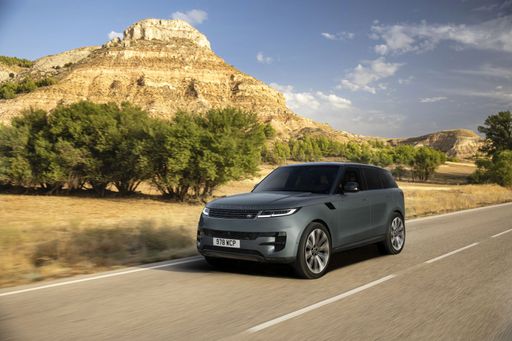
Land Rover Range Rover Sport
Costs and Consumption
View detailed analysis
Engine and Performance
View detailed analysis
Dimensions and Body
View detailed analysis
Jeep Compass
The Jeep Compass packs classic Jeep styling with a surprisingly composed demeanor, equally at home turning heads in the city or tackling a weekend dirt track. Inside it's a pragmatic, user-friendly compact SUV that prioritizes comfort and versatility — a smart pick if you want a dose of adventure without giving up everyday sense.
details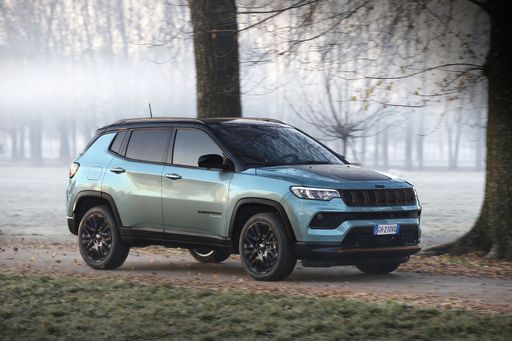
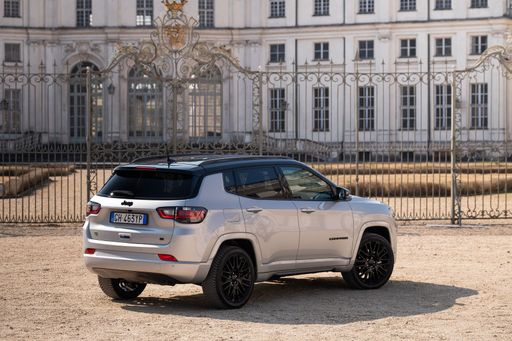
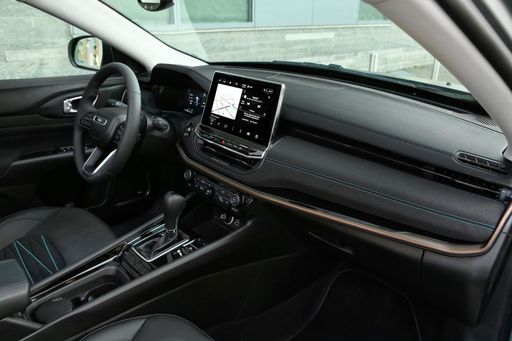
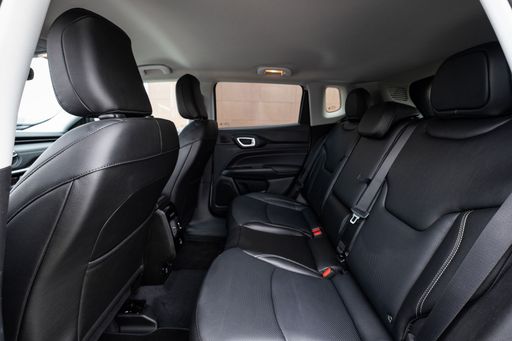
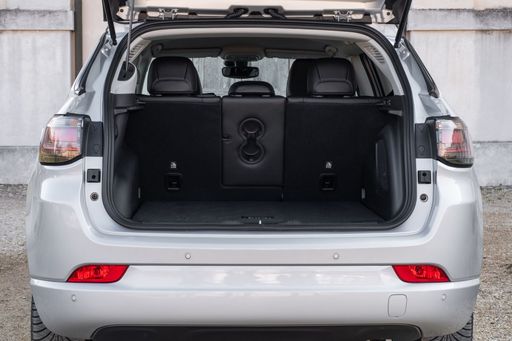
Land Rover Range Rover Sport
The Range Rover Sport pairs unapologetic presence with genuine capability, looking like it belongs on a red carpet while quietly promising to tackle rough tracks when called upon. Inside, the cabin pampers with plush materials and thoughtful tech, making it an irresistible choice for buyers who want luxury, confidence and a touch of adventure.
details
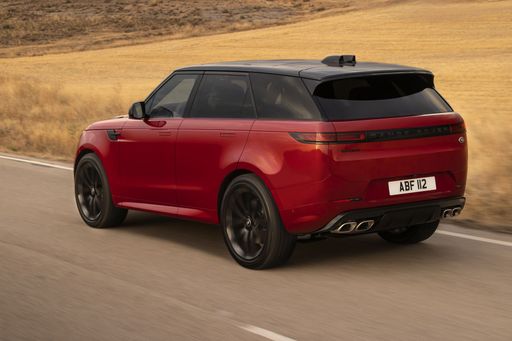
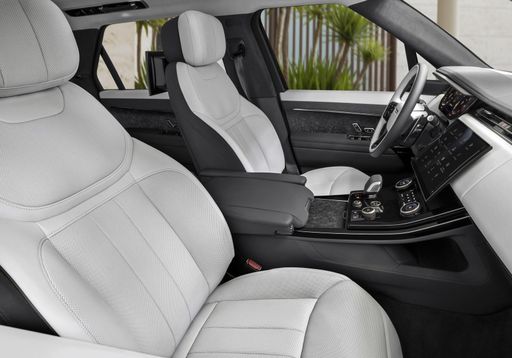

|

|
|
|
|
Costs and Consumption |
|
|---|---|
|
Price
34200 - 43200 £
|
Price
78600 - 175700 £
|
|
Consumption L/100km
5.8 - 5.9 L
|
Consumption L/100km
2.7 - 11.7 L
|
|
Consumption kWh/100km
17.50 kWh
|
Consumption kWh/100km
-
|
|
Electric Range
500 km
|
Electric Range
116 - 118 km
|
|
Battery Capacity
74 kWh
|
Battery Capacity
31.80 kWh
|
|
co2
0 - 133 g/km
|
co2
61 - 266 g/km
|
|
Fuel tank capacity
55 L
|
Fuel tank capacity
71 - 90 L
|
Dimensions and Body |
|
|---|---|
|
Body Type
SUV
|
Body Type
SUV
|
|
Seats
5
|
Seats
5
|
|
Doors
5
|
Doors
5
|
|
Curb weight
1667 - 2198 kg
|
Curb weight
2390 - 2810 kg
|
|
Trunk capacity
550 L
|
Trunk capacity
647 L
|
|
Length
4552 mm
|
Length
4946 - 4970 mm
|
|
Width
1928 mm
|
Width
2043 mm
|
|
Height
1675 mm
|
Height
1814 - 1820 mm
|
|
Max trunk capacity
1561 L
|
Max trunk capacity
1491 L
|
|
Payload
-
|
Payload
640 - 830 kg
|
Engine and Performance |
|
|---|---|
|
Engine Type
Petrol MHEV, Electric
|
Engine Type
Plugin Hybrid, Petrol MHEV, Diesel MHEV
|
|
Transmission
Automatic
|
Transmission
Automatic
|
|
Transmission Detail
Dual-Clutch Automatic, Reduction Gearbox
|
Transmission Detail
Automatic Gearbox
|
|
Drive Type
Front-Wheel Drive
|
Drive Type
All-Wheel Drive
|
|
Power HP
145 - 213 HP
|
Power HP
249 - 635 HP
|
|
Acceleration 0-100km/h
8.5 - 10.3 s
|
Acceleration 0-100km/h
3.8 - 7.7 s
|
|
Max Speed
180 - 188 km/h
|
Max Speed
206 - 290 km/h
|
|
Torque
230 - 345 Nm
|
Torque
570 - 800 Nm
|
|
Number of Cylinders
3 - 4
|
Number of Cylinders
6 - 8
|
|
Power kW
107 - 157 kW
|
Power kW
183 - 467 kW
|
|
Engine capacity
1199 cm3
|
Engine capacity
2997 - 4395 cm3
|
General |
|
|---|---|
|
Model Year
2025
|
Model Year
2025
|
|
CO2 Efficiency Class
D, A
|
CO2 Efficiency Class
B, G
|
|
Brand
Jeep
|
Brand
Land Rover
|
What drivetrain options does the Jeep Compass have?
The Jeep Compass is available as Front-Wheel Drive.
The prices and data displayed are estimates based on German list prices and may vary by country. This information is not legally binding.
